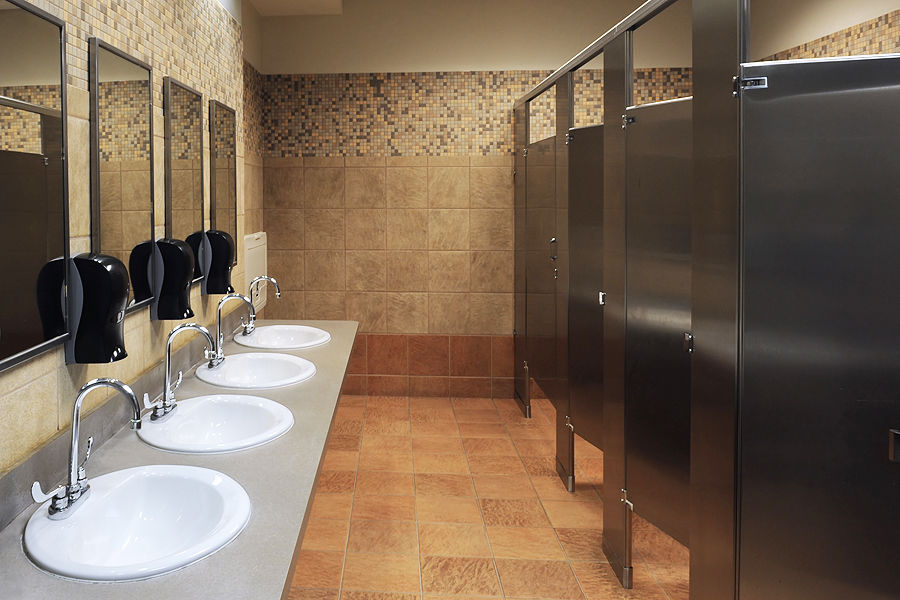Washington D.C., Jul 8, 2016 / 04:16 pm (CNA/EWTN News).- Ten states have announced that they are suing the federal government over a rule that would allow students to use the restrooms and locker rooms of their choice, rather than those that match their biological sex.
The July 8 lawsuit was filed in Nebraska federal court. In addition to the state of Nebraska, Arkansas, Kansas, Michigan, Montana, North Dakota, Ohio, South Carolina, South Dakota, and Wyoming joined in the legal challenge. Friday’s lawsuit follows an earlier lawsuit by 11 states challenging the same federal directive.
“When a federal agency takes such unilateral action in an attempt to change the meaning of established law, it leaves state and local authorities with no other option than to pursue legal clarity in federal court in order to enforce the rule of law,” said a statement by Nebraska’s attorney general, announcing the new lawsuit.
“Current state law and federal regulations allow schools to maintain separate facilities based upon sex,” the announcement said. “The recent action by these two federal agencies to require showers, locker rooms, and bathrooms be open to both sexes based solely on the student’s choice, circumvents this established law by ignoring the appropriate legislative process necessary to change such a law. It also supersedes local school districts’ authority to address student issues on an individualized, professional and private basis.”
In May, the Department of Justice and Department of Education sent a letter to all U.S. school districts announcing a new federal guidance, which instructed every public school in the country to allow students who identify as transgender to use the facilities — including restrooms and locker rooms — that match their self-determined “gender identity.”
“A school may not require transgender students to use facilities inconsistent with their gender identity or to use individual-user facilities when other students are not required to do so,” the directive said. It added “a school must not treat a transgender student differently from the way it treats other students of the same gender identity.”
The federal guidance may also affect sex-segregated athletics and roommate assignments on trips. Although the directive does not have the force of law, it implicitly threatens schools that do not comply with lawsuits or a loss of federal aid, according to the New York Times. For the purpose of Title IX compliance, the federal departments said they “treat a student’s gender identity as the student’s sex.” The guidance said gender identity is “an individual’s internal sense of gender” that may differ from “the person’s sex assigned at birth.”
In the last two months, the federal guidance has sparked controversy, with critics warning that it has a wide potential for abuse and endangers the safety and privacy of students. The U.S. bishops responded to the “deeply disturbing” federal guidance by warning that it “contradicts a basic understanding of human formation so well expressed by Pope Francis: that ‘the young need to be helped to accept their own body as it was created’.”
The bishops’ May 16 statement was authored by Bishop Richard Malone of Buffalo, chairman of the bishops’ Committee on Laity, Marriage, Family Life and Youth, and by Archbishop George Lucas, who chairs the bishops’ Committee on Catholic Education.
“Children, youth, and parents in these difficult situations deserve compassion, sensitivity, and respect,” they said. “All of these can be expressed without infringing on legitimate concerns about privacy and security on the part of the other young students and parents.”
However, the federal guidance fails to achieve this balance, the bishops said, citing Pope Francis’ caution that “biological sex and the socio-cultural role of sex (gender) can be distinguished but not separated.” They stressed that the Catholic Church “consistently affirms the inherent dignity of each and every human person and advocates for the wellbeing of all people, particularly the most vulnerable.”
“Especially at a young age and in schools, it is important that our children understand the depth of God's love for them and their intrinsic worth and beauty. Children should always be and feel safe and secure and know they are loved,” they added.
Photo credit: Martin Haas via www.shutterstock.com.

